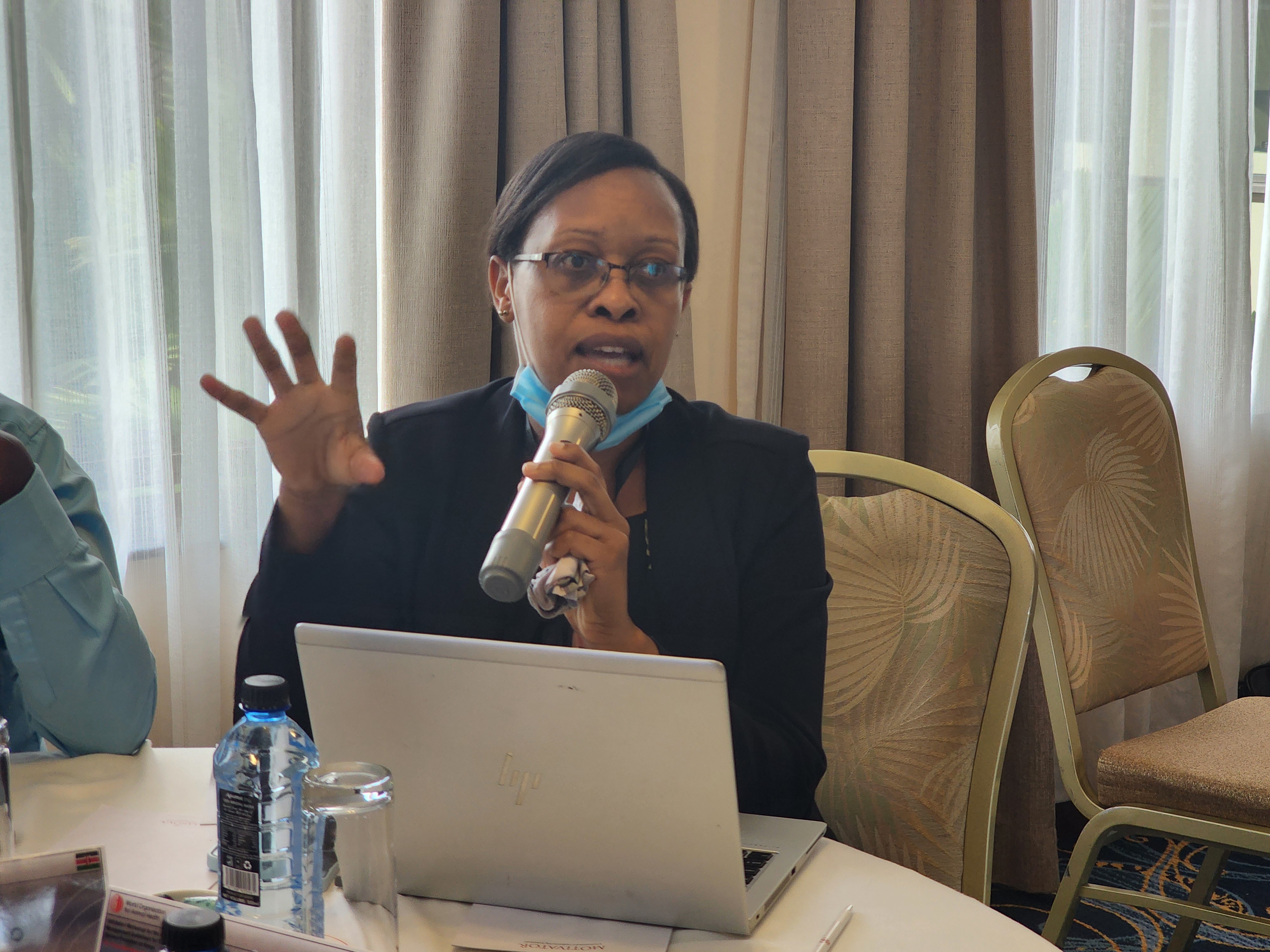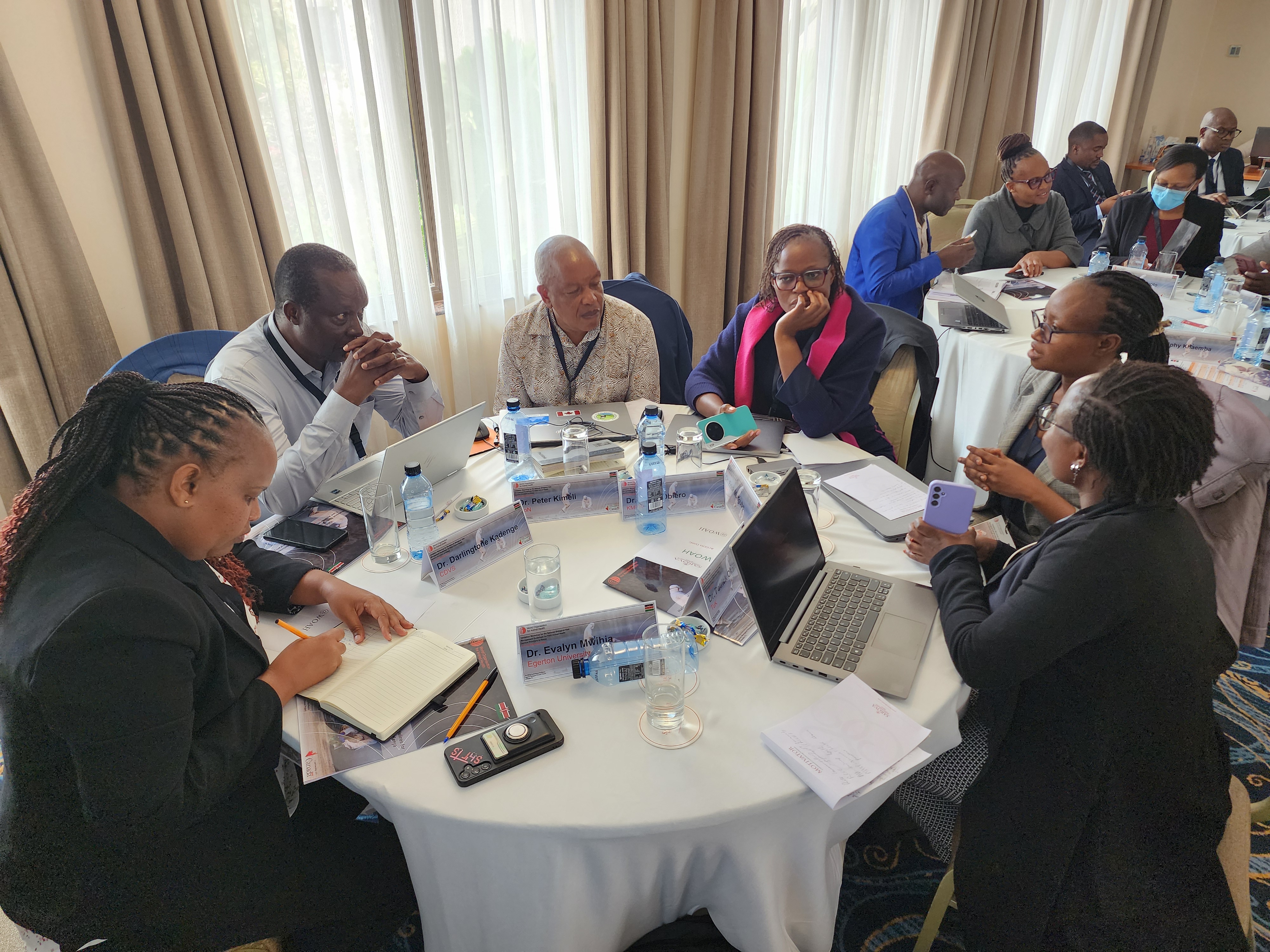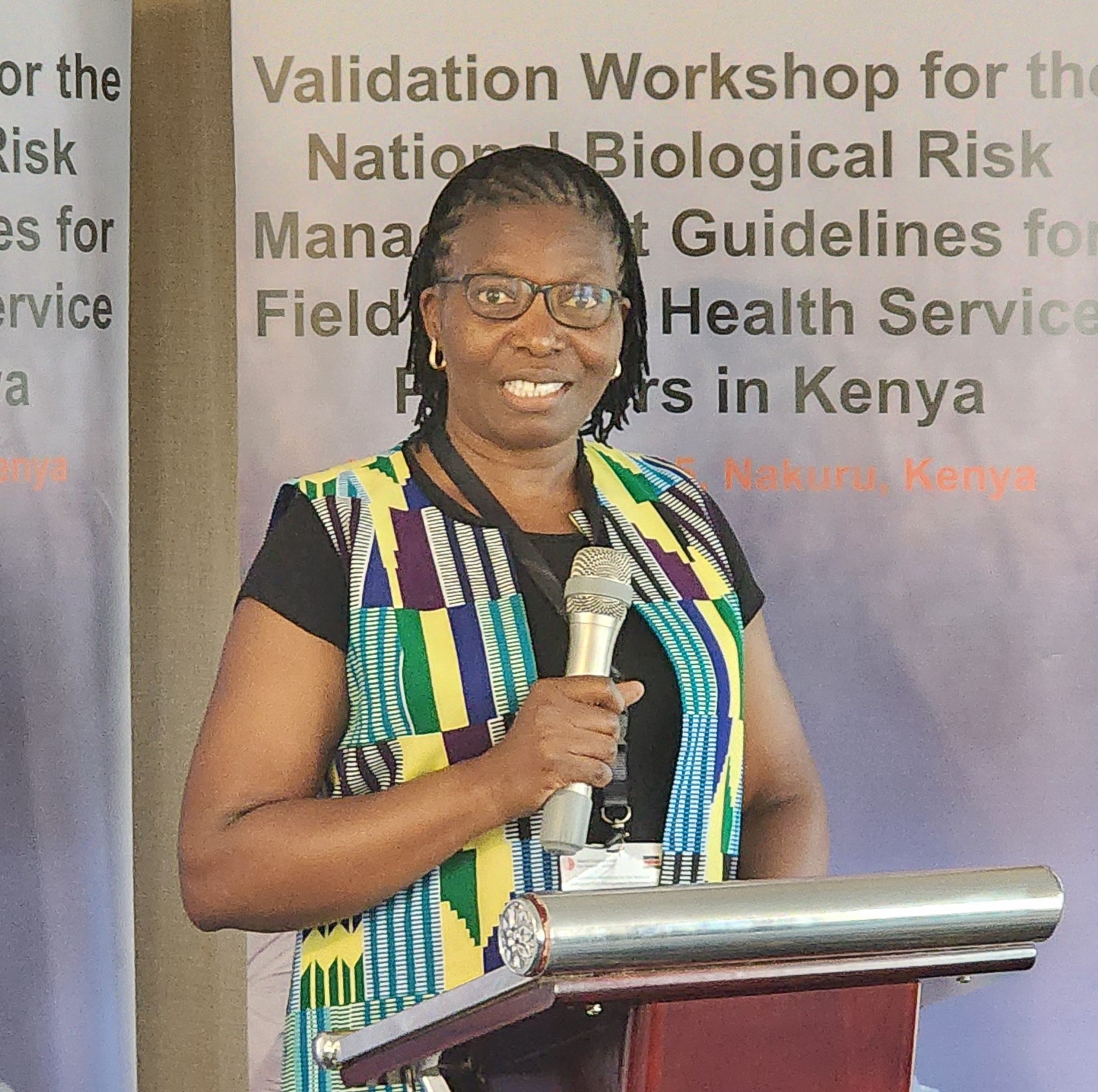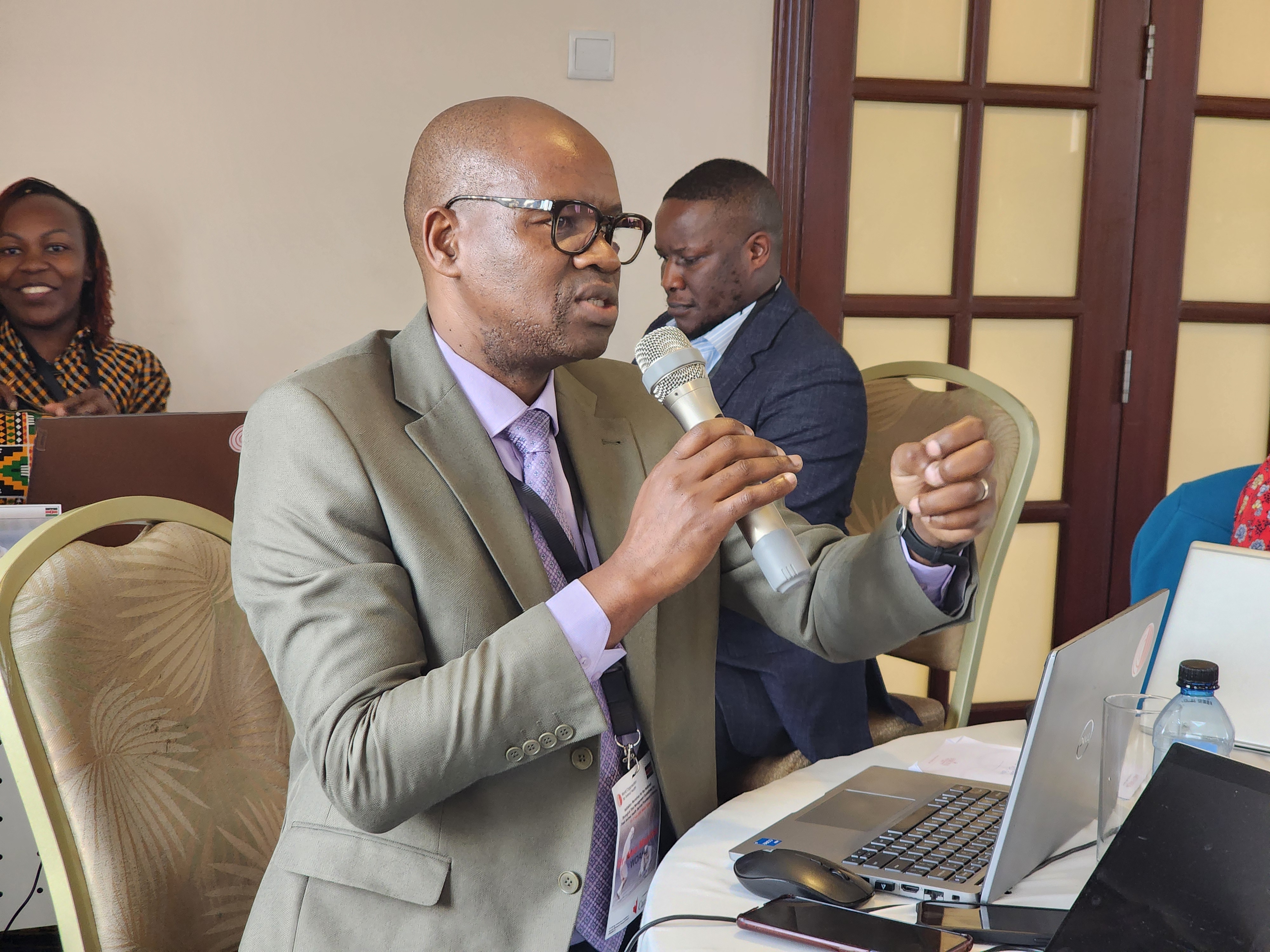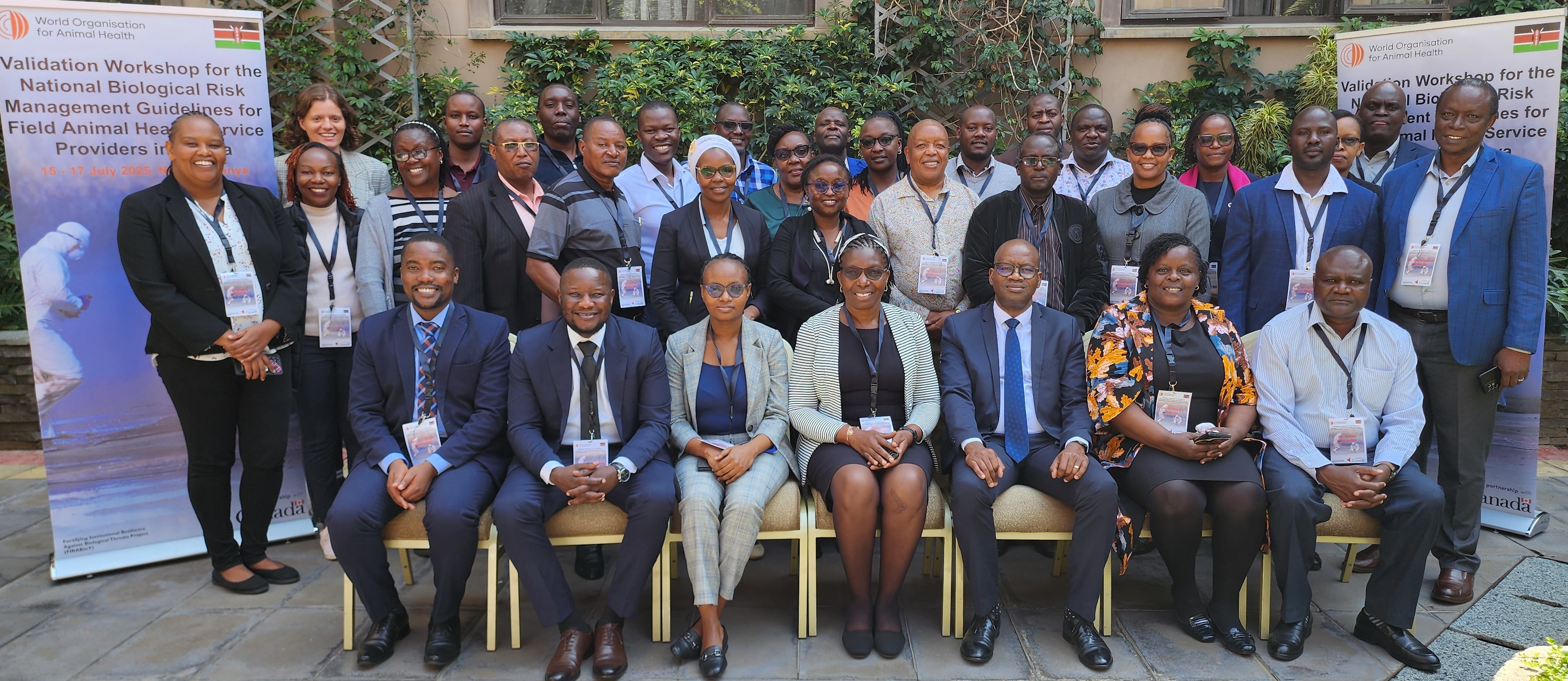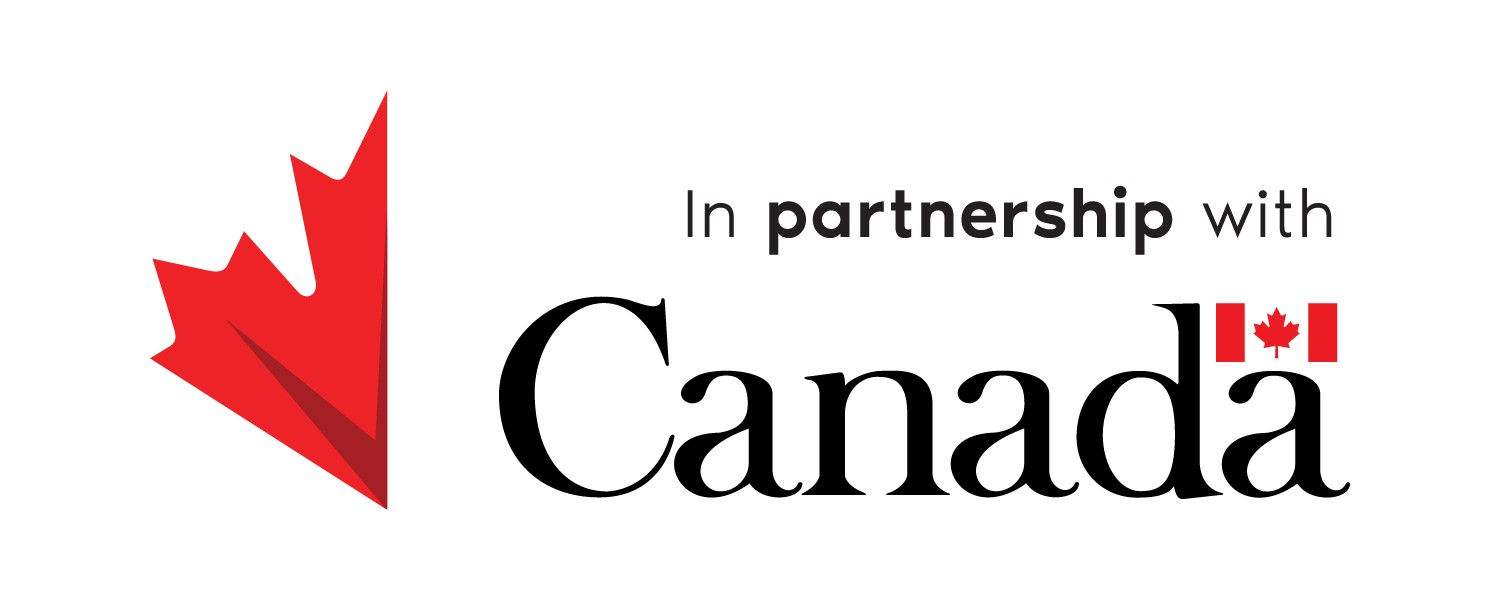
Recognising critical gaps in biological risk management during field-based animal health operations, Kenya initiated the development of national guidelines to support field animal health service providers. Supported by WOAH under the Fortifying Institutional Resilience Against Biological Threats (FIRABioT) project, the process began with a drafting workshop in March 2025, followed by multiple rounds of stakeholder and expert review, culminating in the validation workshop in Nakuru.
The validation workshop, held from 15 to 17 July 2025 in Nakuru, brought together representatives from a wide range of government entities, including those from the animal and public health sectors, wildlife and fisheries departments, disaster management agencies, and the defence forces. Also in attendance were stakeholders from the private sector, professional associations, academia, research institutions, and vaccine production facilities.
Participants collaboratively scrutinised, edited, and validated the guidelines, which are designed to provide field animal health service providers with practical guidance on biological risk assessment, risk mitigation, and risk communication.
Participants engaging in a group discussion. Picture © I. Busuulwa (woah) 2025.
Dr. Sabenzia Wekesa, Senior Deputy Director of Veterinary Services, speaking on behalf of Dr. Allan Azegele, WOAH Delegate for Kenya. Picture © I. Busuulwa (woah) 2025
The workshop was officially opened by Dr. Sabenzia Wekesa, Senior Deputy Director of Veterinary Services, speaking on behalf of Dr. Allan Azegele, WOAH Delegate for Kenya. In her remarks, Dr. Wekesa reaffirmed Kenya’s commitment to strengthening national preparedness and response capacities.
Dr. Neo Mapitse, WOAH Sub-Regional Representative for Eastern Africa, speaking during the workshop. Picture © I. Busuulwa (woah) 2025
Dr. Neo Mapitse, WOAH Sub-Regional Representative for Eastern Africa, delivered opening remarks highlighting the importance of collaborative action in addressing emerging biological threats and encouraging the implementation of the validated guidelines.
During the validation workshop, an implementation plan was developed to support the effective rollout of the guidelines by the Veterinary Services. The development of the National Biological Risk Management Guidelines for Field Animal Health Service Providers is part of Kenya’s activities as a beneficiary of the Fortifying Institutional Resilience against Biological Threats (FIRABioT) Project. This project is funded by Global Affairs Canada’s Weapons Threat Reduction Programme in support of the Global Partnership Signature Initiative to Mitigate Biological Threats in Africa.
